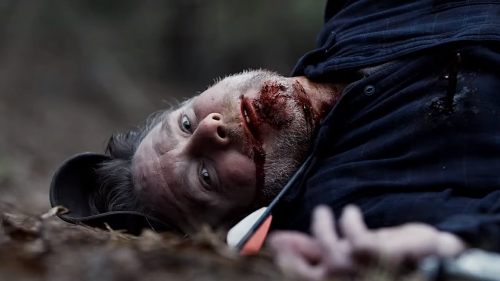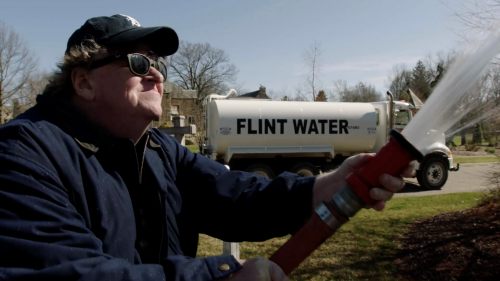What We Can Do - Education Edition
Note: the following column was written with the assistance of MAMA-HULK. Who has spent her life working with the state's Education Assessment and Development Committee, aiding teachers in the Department of Youth Services, working to help teachers renew their licenses, and most important of all, served for 36 years as an English teacher in the public education system.
* * *
Betsy DeVos is now the secretary of the department of education.
I once made the observation that all of Trump's cabinet picks are uniquely suited to undermine the very department they are in charge of (they're like Ron Swansons without the humility or decency). While I acknowledge there is a curious level of vehemence for DeVos in comparison to some of the other more cocksure-yet-equally-awful male candidates, she still came to her hearing laughably unprepared, showcasing not only a down-right ugly plan for the future of education but a complete lack of familiarity with the very system she casually dismisses. Her appointment, like everything about this administration, will be an American Tragedy. But this all goes deeper than DeVos and the incompetent nature of her ability. This goes to the problems of the policy they will be enforcing and how we really have to understand the subject matter we are about to dive into. And the number one issue on her docket is something that has been the Republican policy on education for a long time now, and that is the use of school vouchers.
Please, make no mistake about the following idea: school vouchers represent literally the same thinking as not putting enough life boats on the Titanic.
I mean that. It is not an exaggeration. It is literally saying "we are going to take the education budget and then spend that money on the 'good ones' so they can go to fancy prep schools and everyone else can fucking drown." This should be the only fact that matters. And yet we always get trapped in an entire conversation about whether or not vouchers are "good" for the kids who participate, or the degree to which they improve certain education metrics, etc. To which I say, yes, I understand that it is a complicated systemic problem and we theoretically would want to make improvements in any way we can, but it doesn't matter unless we look at it as a complete system. To that end, the belief that every child has an inalienable right to the best quality public education we can muster is something we consider to be the foundation of American society. And thus, the vouchers debate is inherently a moral one. To wit, I can give five students 20 dollars, or I can give Jeremy 100 dollars. The conversation is not whether it's good to give Jeremy 100 dollars. Of course it is. But really, it's about what happens to the other four. Not all students are equal, but all students deserve equal opportunity. So like the lifeboats on the Titanic, the problem with the voucher system is that it is simply immoral.
To me, the entire conversation has to start from the acceptance of that fact. Again, I know public education is an immensely complicated system, but everything has to come from that simple ethical argument. Largely because the voucher debate is hell-bent on getting us to frame the issue in the wrong way. It prays on the thinking "but what if it was my kid who was stuck in a failing school?" while never acknowledging that your kid will likely be one of the ones left to drown (especially if they aren't white). But the thinking behind the voucher program actually gets into a broader and even more complicated discussion: Charter Schools. Like vouchers, the entire argument is not about whether charter schools "work." And to be clear, the answer to that question is "sometimes." The most evident cases are in a lot of deeply-troubled areas where members of the community and passionate educators band together to break through a lot of regulation to duct-tape together a passable education in destitute areas. This often causes a lot of people to be like Hey, good for you! Respect the pluck, right? Surely this must be the way forward with education!
No.
On two counts.
The first is the understanding that making charter schools in tough areas isn't a real fix (as sometimes it's disastrous). For starters, they can not only be dreadfully inconsistent year to year, but with private meddling, they often face the same problems private prisons do and there's a lot of horrific fraud). Make no mistake, it's like the families that take in foster kids for the government check. No, charter schools that do well tend to have incredible levels of involvement from the parents and community. And wouldn't you know it, but those same problems of being not white show up in charter school selection too. Who woulda thunk! Turns out there is, of course, high intervention and selection process for who they admit to charter schools. No children with mental or physical handicaps, behavioral problems, lack of English speaking or citizenship. So what do we do with these students? Well, they drown. They get thrown to the wolves. Pick your metaphor. Simply put, charter schools are so far from the cure-all answer. But we have to understand how difficult the question is.
In truth, the difficulties of facing education in poor areas mean embracing a commitment to fostering life skills and social services, too. I'm talking about school systems that send food home with the students or provide laundry facilities so they can wash their clothes. This all means we have to actually acknowledge that success in education is directly proportional to socioeconomic status and that investing in education means investing in American society. You cannot separate the problems of society and think you can tackle them individually. You cannot attack it through thinking the problem is that these schools are simply too "lax" in dealing with the massive societal problems they battle (don't even get me started on this horseshit from Paul Ryan - someone may not want a handout, but I can tell you they don't want to starve even more). Which means learning that it's "no child left behind" is an asinine approach that removes this cultural thought entirely and just gets people to "teach the test" instead of building a community. Which just, you know, ends up leaving children behind. So we cannot mistake standards for compassion.
Now, you could point to the idea that tying schools to township seems equally insane and problematic, especially as it's just another arbitrary idea that determines relative failure. Especially as you cannot help where you are born. And after all, what is districting but another form of selection? And then there's all the very real problems of gerrymandering. The simple and unsatisfying answer is the most fair one we can offer when it comes to the ethical treatment of the whole. Remember, how we treat the whole IS going to be how your child is treated. They will not be the individual who will find exception. We have to stop with the exceptionalism (it's the same as thinking you will be fine because you'll win the lottery). So yes, township thinking comes with a lot of problems, but it gets you thinking about fixing community. Which is the only true way forward. And thus it gets into the larger discussion on how we approach failing cities to begin with. Because the fate of America is not left to the obligatory success of the technocracy-focused New Yorks, The LAs, the San Franciscos, the Bostons.... it rests in the Detroits, the Baltimores, The El Pasos, and the Uticas. Not to mention the endless swath of public education problems across the rural countryside. While each of these communities have both similar and unique battles, the question of how we fix our schools is inherently tied to how we fix the socio-economic state of America itself.
The second and equally critical problem is that the effect of charter schools on middle-class communities is positively devastating. Even in townships doing well, most school budgets hang on the edge of a knife where an extra teacher per department is the difference between classes of 22 and 30. Places where the failure to vote for local tax overrides is equally devastating. But instead of building a complete system for the town, it instantly creates a kind of cannibalization and separation. The effect is really harmful (put in terms of sportz: schools within your township need to work like the NFL, not the Premiere League). In the end, the problems with Charters are the problems of the voucher system writ large, which just makes those problems more difficult for some to see. So while the conversation becomes about whether Charters are "good" or "work" within the schools, you have to wrestle the conversation away from that. You have to look at the effect on the whole of the township. You have to fight for the idea that, like vouchers, charters are inherently immoral and emphasize that despite what you may think, odds are that "your kid will be the one left behind."
Now, to be very clear, if you are a parent facing a choice in schools, I do not bemoan you for fighting to get your child into the best school possible. Not one iota. Fighting for opportunities and your child's future is your darn job. But, and this is the whole kit and kaboodle folks, you have to be able to see the difference between how you navigate a situation with your individual kid and how you treat the system as a whole. Because while you fight within a system that's in place to help your child, there is a tendency to subconsciously think "fuck you, got mine." But you have to realize that advocating the system of charters and separation and good schools and bad schools is what makes you have to fight to navigate through that system in the first place. It's just setting yourself up to have to battle in an individualistic way. You have to realize that giving your kid the best education possible means banding together with other parents and your community and fighting for the school system as a whole. It is the village mentality that saves school systems and saves your child. Please understand, I'm not trying to underplay how difficult that is. But if you're just looking out for your own kid, you will be battling every step of the way and more often than not, dooming them to participating in systemic failure. You may think you're getting them ahead, but in truth you are probably going to leave them behind. And this horrible dynamic is the entire problem with the conservative mindset toward public education on the whole.
But it's even bigger than that.
I've written a bit before about how so many problems of our society come from the "logical" ways we apply individual solutions to systemic thought. If I was leaving a bar with my friend and told him I was walking home, he might say "Hey, you might want to walk this way instead of that way as it's a bit safer." Which translates to a little bit of common sense about staying in safer areas, right? Fairly harmless. But if you apply that thinking to a whole system? Then the societal approach to "bad areas" just means leaving them alone to rot while we focus on the things we see. It's horrific, but you see this thinking all the damn time. It's Paul Ryan thinking he'd be too proud to take a hand out resulting in having kids starve. We cannot look at individual solutions as solutions for the system. They are two different things and work in completely different ways. They always have been. But getting people to get out of their own heads to see that? To alleviate their own fears? To spend their money? It's seemingly the most difficult thing in the world. But it is, and has always been, the societal solution. As it is often put, fire departments are a waste money until the day you actually need them to save your life.
And public education is the way to save our country's minds.
I ask in these columns "What can you do?" Well, you can take a hard and active look at the way we approach education, especially in your community. Because we can band together to start thinking as a community, or we can cannibalize and suffer the death of a thousand paper cuts.
Sadly, I find the biggest obstacle with this is not some griping about liberal or conservative thought. It's about how most people felt about school when they were growing up. Most people hated their teachers. They were the enemy, after all. But you can still see that thinking as adults when they come in to deal with their kids and the school system. You can see it in the nonsensical vehemence toward the teacher's union, which a former Department of Education head actually called a "terrorist group." They're cited as the major obstruction to education because they protect all these bad teachers and prevent them from being fired or something. They're so evil!
First off, no. All this "unfit teacher" talk is as trumped up as the talk of welfare cheats and voter fraud (okay, nothing's that trumped up). Yes, the teacher's union provides barriers in getting teachers fired immediately, but it still goes through the process and more often does its rightful job in protecting them. Really, this nonsense is nothing but your usual scapegoating. Second off, the "let's fire all bad teachers!" implies there is a bevy of not only qualified but willing candidates to take up the cause. Hey, guess why we have teacher shortages? It's not because there's a line at the door. It's because the job is insanely difficult, takes a great deal of education qualifications, and pays utter shit. Unlike, Mama-Hulk, who spent her entire life as a servant in public education, I've done a number of odd jobs throughout the years. From manual labor, to boring admin, to cushy office jobs, to being a boss, to writing from my couch, to even spending whole weeks shoveling shit. And as much as we like to complain, the summer I spent teaching (in a more relaxed setting to boot) was the hardest job I've ever done, bar none. Having 20 young eyes staring up at you expecting you to both illuminate them and guide them throughout the entire day is the most insanely difficult and tiring duty imaginable. And I was even pretty okay at it. But with that, why the heck would I want to cash in my easy life to become a teacher? I wouldn't. Nobody would unless they really want to do it. But that doesn't stop people from disparaging teachers and complaining about how they have summers off (but hey, let's ignore that shit pay means they work summers too). I could go on and on, but the point of all of this is to realize teachers are there for a reason.
They are not there to be an obstacle for your kid.
They are there to help your kid. Some of them spend more time with your kid than you do. So realize the teacher is there to help you. Realize you are a team. Stop showing up and reaming out your teacher because your kid got a B+ or an F. Realize this is about more than grades and performance. Realize this is a process. That this is about fostering an appreciation of education itself. That this is about getting your kid to learn to love learning. Because if you can do that then you've already won the war. All the trivial little battles fade and performacne problems start solving themselves. Realize you can work together to support the community. You can vote for overrides. Participate in school board decisions. Join the PTA and be a voice for sanity, not hysteria. Heck, even if you are a young working person with no kids, take an interest in your local school systems. Ask how you can help. Volunteer. For instance, my friend Laura works with an amazing program in the Pacific Northwest called RISE. Vote down charter schools. Realize DeVos and the new department of education is not going to rescue YOUR child from a sinking ship, they are going to do everything possible to undermine YOUR child in the name of someone with more money. Remember that every good public education is built off the interest and tax paying support of the community. So you have to be the education you wish to see in your community.
And understand that the way we treat the system IS the way you treat your kid.
And thus the way you treat yourself.
So let's fight for our education.
<3 HULK & MAMA-HULK



